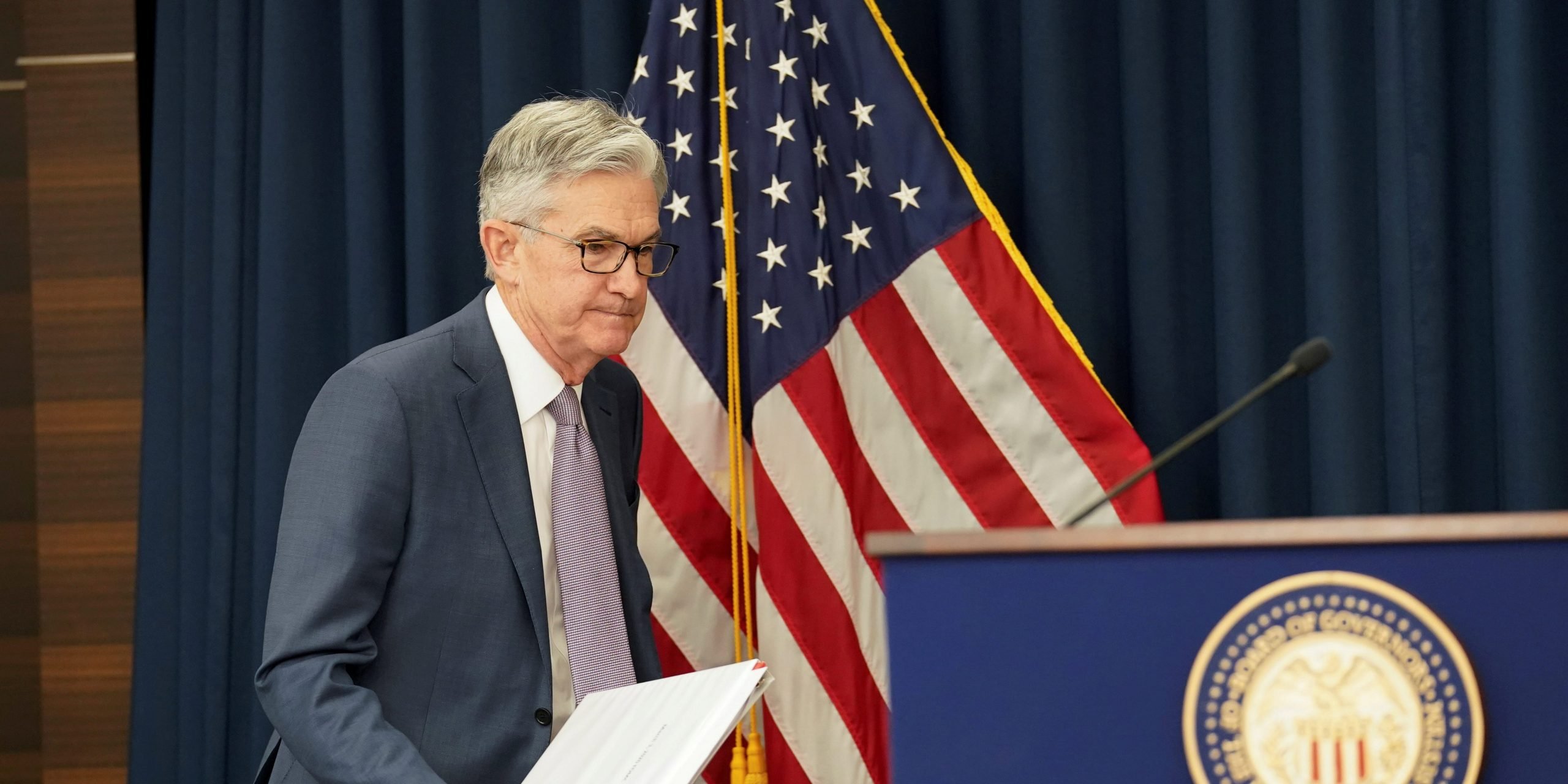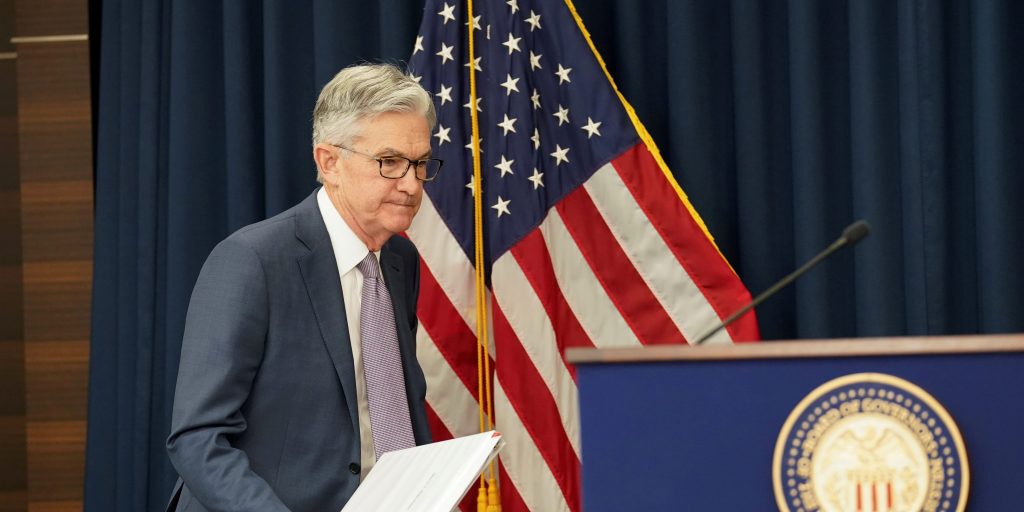
Kevin Lamarque/Reuters
- Federal Reserve policymakers will no longer be able to purchase individual securities as part of rule changes outlined Thursday.
- The changes follow stock-trading controversies by two Fed regional presidents who have stepped down.
- Senior Fed officials will be limited to buying diversified investment vehicles, like mutual funds.
The Federal Reserve will ban policymakers from buying individual securities, the US central bank said Thursday in the wake of controversial trades by two regional presidents who have already stepped down.
New rules from the central bank's board will prohibit the purchase of individual securities and restrict active trading by policymakers as well as senior staff, according to a statement. Holding investments in individual bonds, agency securities – either directly or indirectly – or entering into derivatives will also be banned.
Senior Fed officials will be limited to buying diversified investment vehicles, like mutual funds. The board is also increasing the timeliness of reporting and public disclosure by policymakers and senior staff.
"These tough new rules raise the bar high in order to assure the public we serve that all of our senior officials maintain a single-minded focus on the public mission of the Federal Reserve," said Fed Chair Jerome Powell in the statement. The changes will be incorporated in the coming months.
The tighter policy comes after Boston Fed President Eric Rosengren and Dallas Fed President Robert Kaplan recently came under fire for stock purchases they made during the pandemic, which spurred the Fed to unleash massive stimulus measures. Both men in recent weeks have stepped down from their positions.
Critics raised questions about conflicts of interest in stock trading by Fed officials because of their roles in shaping monetary policy for the world's largest economy.
The Fed also said Thursday that policymakers and senior staff generally will be required to provide advance notice of 45 days for purchases and sales of securities. And they must receive prior approval for such moves and hold investments for at least one year. The Fed said the requirements are aimed at guarding against "even the appearance of any conflict of interest" in the timing of investment decisions.
Also, no purchases or sales will be allowed during periods of heightened financial market stress. Reserve Bank presidents must publicly disclose financial transactions within 30 days, putting them in line with current rules for board members and senior staff.
Kaplan made million-dollar trades in stocks, including Tesla and Amazon, according to a disclosure form provided by his bank that was first reported by The Wall Street Journal. Rosengren reportedly traded real estate investment trusts actively. Kaplan and Rosengren in September apologized and dumped their purchases.
Kaplan left on October 8 and addressed the controversy in a statement from the Dallas Fed. Rosengren resigned last month, citing health issues. Rosengren, whose term would've been up in June 2022, revealed he has a kidney condition and needs dialysis.

